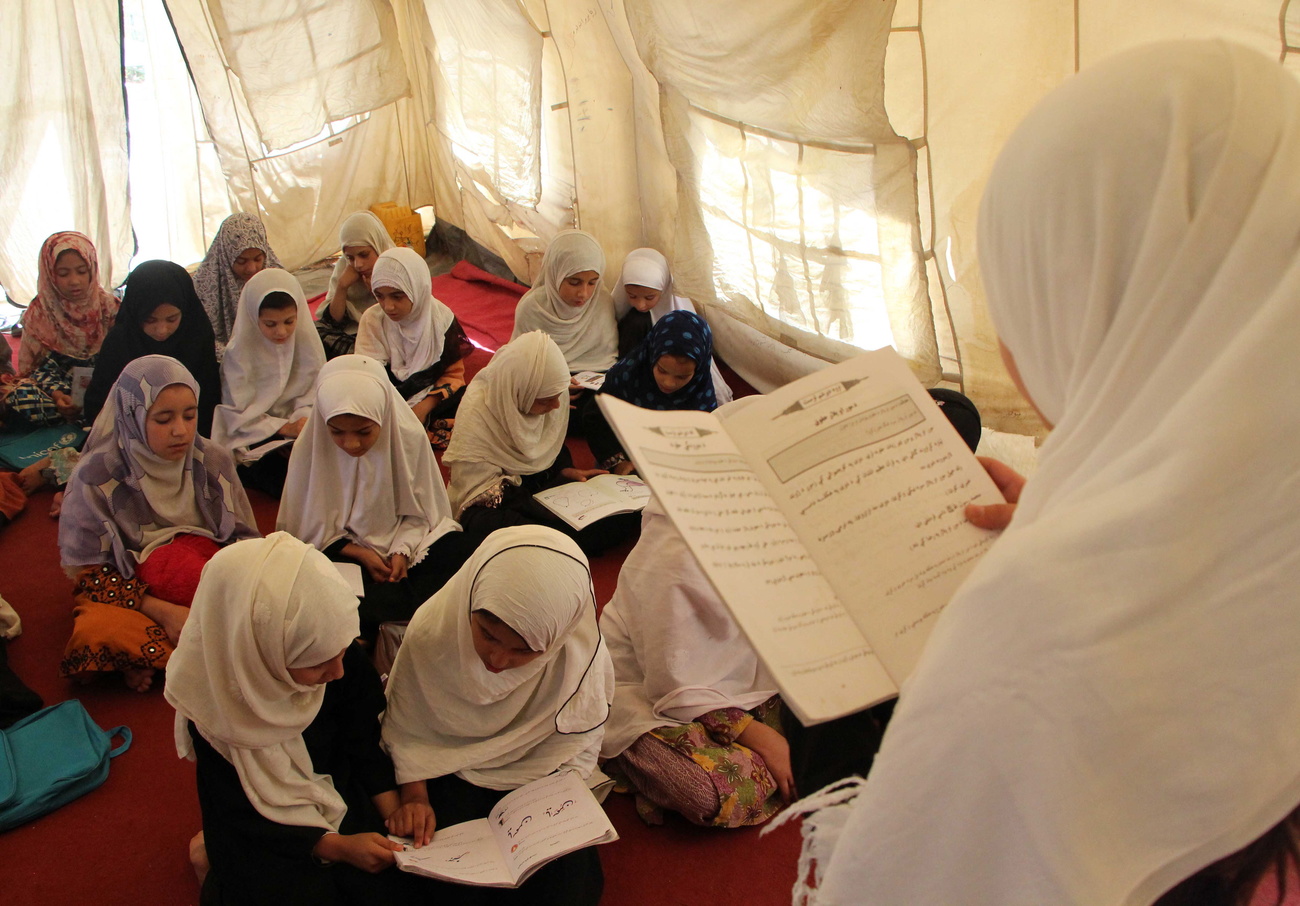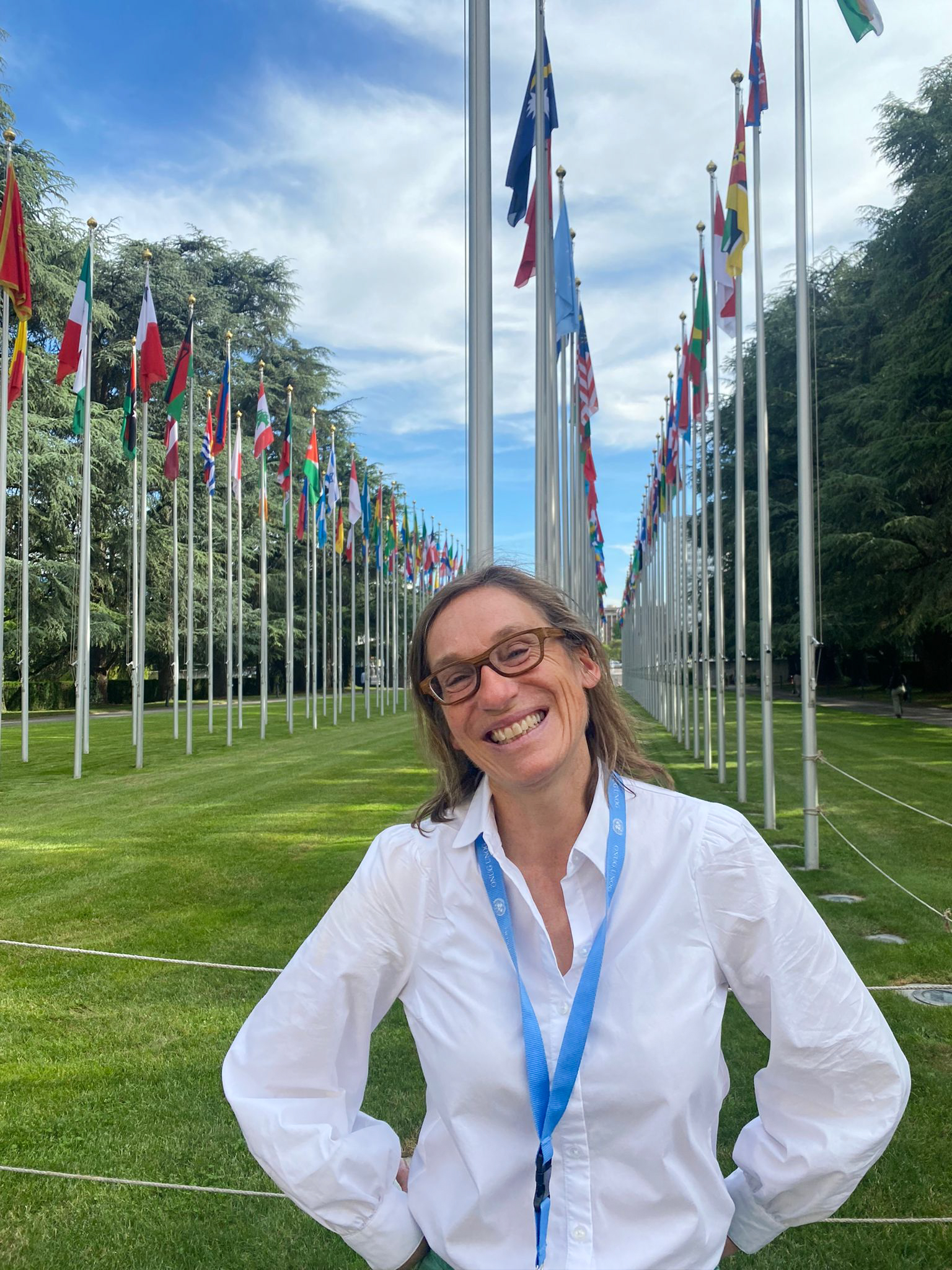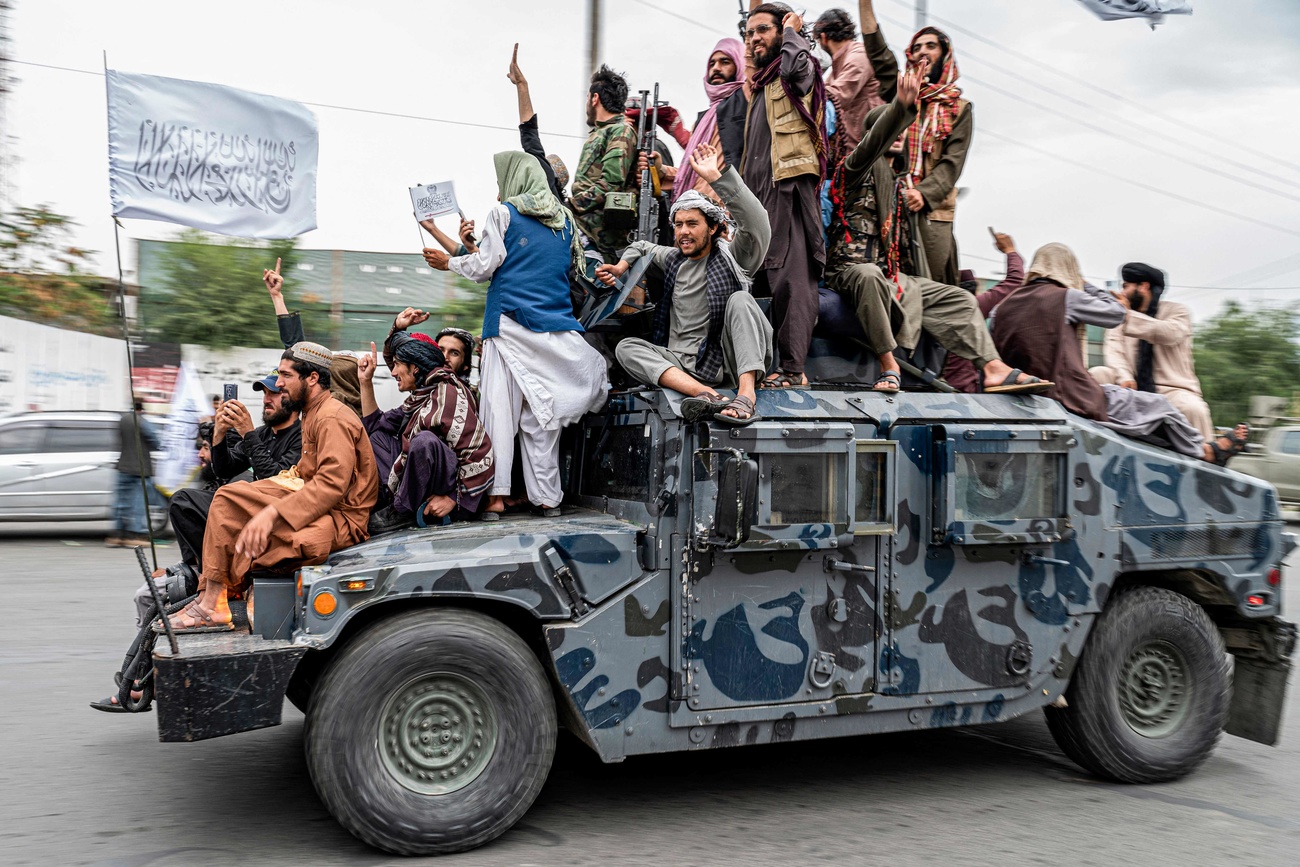Afghan women ‘very afraid’ of new Taliban law, says NGO worker

Sibylle Mani, the Human Rights Coordinator for Afghanistan at the World Organisation Against Torture (OMCT), travelled to Afghanistan at the end of August. In an interview she explains her mission to get an insight into the current challenging situation of human rights and the shrinking civic space in the country.
Afghanistan ratified the Convention against Torture in 1987, which it must adhere to regardless of which government is in power. Mani hadn’t travelled to the country since the Taliban came to power more than three years ago.
The OMCT is mandated by the UN Committee against Torture to coordinate the NGOs globally that submit reports on their countries. The OMCT works in over 90 countries and has around 200 member organisations. This was its first mission to Afghanistan.
During her one-week mission, Mani met local and international NGOs and had rare access to former prisoners, who described their conditions behind bars, where they have faced torture and other forms of ill-treatment. She was also able to meet and talk to women and human rights defenders about the new restrictions on their freedoms in place since the Summer.

SWI swissinfo.ch: Since the Taliban came to power, they have severely restricted the rights of girls and women. Girls cannot attend secondary school, women have few job opportunities and are not allowed to travel without a male relative. Since last August, a new set of laws known as PVP (Propagation of Virtue and Prevention of Vice Law) has imposed new restrictions on women, including a strict dress code. How do these new regulations affect the daily lives of girls and women?
Sibylle Mani: Women are very afraid of this law, which summarises all the rules that the Taliban have enacted since they came to power. It is extremely restrictive and interferes deeply with their private lives. Among other things, the law stipulates how women must dress: they must cover their face with a mask as well as their hands and feet when they leave their house.
One woman told me that if she had a complaint to the local authorities in the past, she could report it to the provincial governor’s office. She was allowed to enter the building and report her concern to the employees through a window. Since the introduction of the PVP, she has been denied access to the building on the grounds that her eyes are not covered and that she no longer has the right to speak in public.
Another woman who owns a private clinic was told by the authorities that she is no longer allowed to run family planning courses for women. She is also no longer allowed to distribute health kits to women. These kits contain menstrual pads, creams to heal wounds and painkillers, among other things. They now have to be distributed by the district health office, i.e. the government, to the husbands. Many men are ashamed to accept such items. As a result, not all women receive them.
Depending on how conservative a local mullah is, life in Afghanistan may or may not be easier. Implementation of regulations vary. In Kabul, for instance, most women don’t wear socks or gloves at the moment and only put a mask on their face at a checkpoint.
SWI: Does the PVP also apply to men?
S.M: The law also contains provisions for men, such as the length of their beard. Another new aspect of the law is that women and men should not work with foreigners.
The PVP authorities, i.e. the Ministry for the Propagation of Virtue and the Prevention of Vice, are responsible for deciding and implementing punishments, not the police. And they can make house calls at any time. The Taliban also put pressure on men to keep their wives under control. The Taliban arrest men and threaten them, saying for example: ‘You can’t control your wife, she left the house without a veil. You have to adjust to the new rules otherwise we have use other measures’.

More
Are women’s rights in Afghanistan negotiable?
SWI: What are some of the reasons that women end up in prison?
S.M: Most cases concern relationships. It is a criminal offence for a woman to leave her husband. Women can be arrested and publicly flogged for this. Women who are not properly veiled can be arrested and taken to a police station. They are usually released after a few hours or a few days if a man in their family signs a guarantee that they will cover themselves properly in future.
Men who demonstrate against the government are taken to a security prison run by the General Directorate of Intelligence (GDI). We do not currently know whether women are in GDI prisons. Many women who participated in demonstrations and were arrested were sexually harassed and abused, and the ones who got a chance left the country after their release.
SWI: The International Committee of the Red Cross, ICRC, can currently visit prisoners in prisons for criminal offences, but not those in GDI prisons. What is the situation in the prisons? Is torture a problem?
S.M: The Emir, the head of the Taliban, Haibatullah Akhundzada, issued a decree in 2022 banning torture in Afghanistan. However, I met people who were tortured either in prisons, police stations or other detention facilities. We also know that torture exists from many other testimonies and reports.
What I could find out is that the administration of prisons for criminal offences is open to implementing the so-called Mandela rules for better prison conditions. In addition to the ICRC, the UN mission in Afghanistan UNAMA (United Nations Assistance Mission in Afghanistan) also has access to these prisons.

SWI: The UN High Commissioner for Human Rights condemns the numerous arbitrary arrests that have been reported in Afghanistan. Do these also affect men?
S.M: Men are more affected by arbitrary arrests than women and little is currently reported about their fate. Men are often arrested on the accusation that they have said something against the Taliban. A human rights activist, let’s call him Hassan, told me that he was arrested by men dressed in plain clothes when he was walking to work. He was detained for ten weeks and had no contact with a lawyer or his family. He was not convicted.
After his arrest, he was taken to a cellar and tortured severely every day for two weeks, including simulated drowning (waterboarding). He was asked for the names of human rights activists and of people working for the media. He was never told where he was. After two weeks, he was supposed to be taken to a security prison. But they refused to take him there because he was in poor health due to the torture. Instead, he was taken to a prison hospital for two weeks. He then spent six weeks in another security prison, where he was interrogated but not tortured. Finally, he was told that if he did not mention his detention to anyone and that he gave up his work as an activist, he would be released. A “guarantor” is held responsible if he does not follow up on his word.
Hassan was released, but lost his family, house and job. He was traumatised and those around him were unable to cope.
SWI: Do prisoners have to pay for their release?
S.M: I know of a case of an activist who was arrested shortly after he had held a workshop for women on gender-based violence. He spent more than 70 days in a security prison in a cell where he could not stand upright. He was tortured with electric shocks, among other methods of torture. It was only three days before his release that he was told the reason for his imprisonment: he had trained women and was a human rights activist. For his release, he had to pay around 100 times the salary of a civil servant. This demand for money was illegal, but the man still paid to be released.
SWI: You worked in Afghanistan for five years until 2020 as an adviser for international human rights and humanitarian organisations. What was it like to return to the country under Taliban rule?
S.M: When I was walking around Kabul, I was initially unsettled to encounter so many Taliban. Where should I look now – straight ahead or, as the new rules demand, avoid eye contact and keep my eyes on the ground? During my five years in Afghanistan, meeting Taliban was a high-security risk. And now they are in power, this change confused me.
Edited by Virginie Mangin/ts

In compliance with the JTI standards
More: SWI swissinfo.ch certified by the Journalism Trust Initiative








You can find an overview of ongoing debates with our journalists here . Please join us!
If you want to start a conversation about a topic raised in this article or want to report factual errors, email us at english@swissinfo.ch.